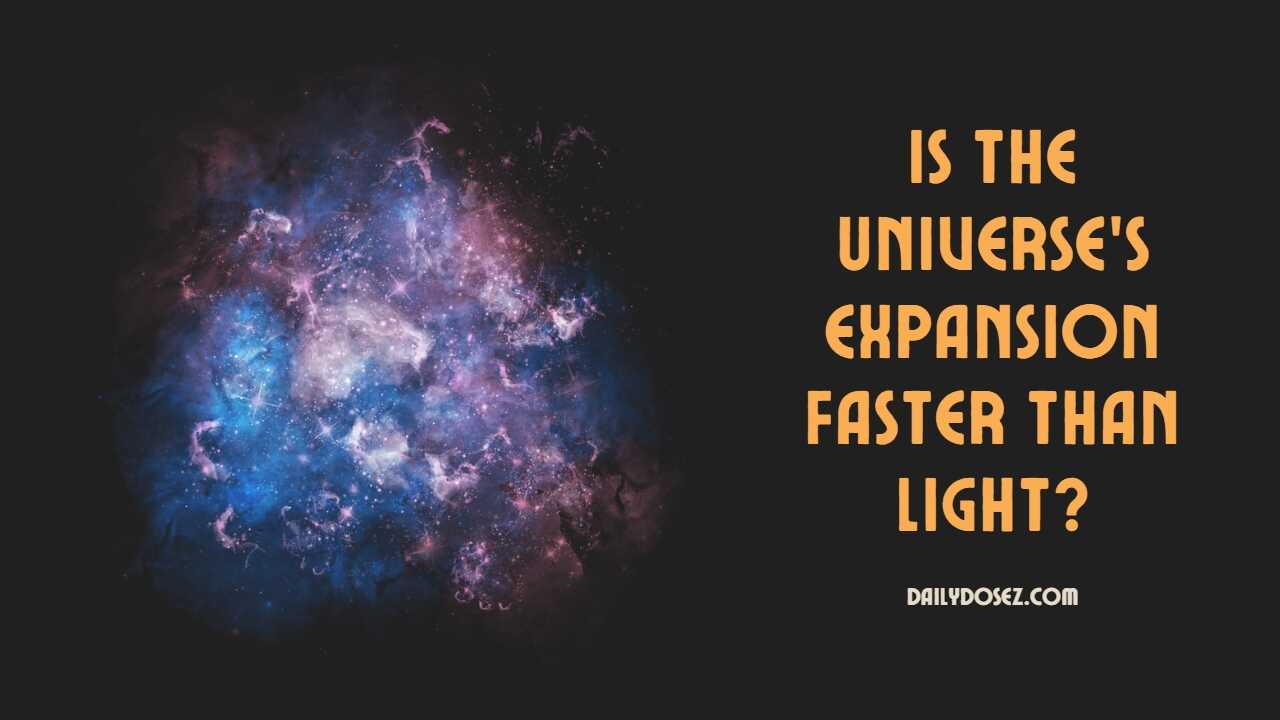The universe has always captivated the human imagination, fueling our curiosity about its vastness and the mysteries it holds. One of the intriguing questions that scientists and cosmologists have been exploring is whether the expansion of the universe is faster than the speed of light. In this article, we will delve into this fascinating topic, examining the concept of the universe’s expansion, the limitations imposed by the speed of light, and the current scientific understanding of this phenomenon.
Understanding the Expansion of the Universe
According to the widely accepted Big Bang theory, the universe began approximately 13.8 billion years ago as a singularity, a point of infinite density and temperature. In the moments following the Big Bang, the universe rapidly expanded, giving rise to the formation of matter, energy, and eventually galaxies and stars. Scientists believe that the expansion is still ongoing and continues to this day.
The Role of the Speed of Light
The speed of light, denoted by the symbol “c,” is a fundamental constant in physics, with a value of approximately 299,792,458 meters per second in a vacuum. It represents the maximum speed at which information or any physical object can travel through space. According to Einstein’s theory of relativity, no object with mass can exceed or even reach the speed of light. As such, light itself serves as a cosmic speed limit, governing the behavior of the universe.
Expansion vs. the Speed of Light
Given that the speed of light is the ultimate cosmic speed limit, it is natural to question whether the universe’s expansion can surpass this limit. However, it is crucial to understand that the expansion of the universe is not limited by the speed of light. This is because the expansion does not involve objects moving through space at speeds faster than light; instead, it is the space between objects that is stretching.
The phenomenon of the universe’s expansion is driven by dark energy, a mysterious force that counteracts gravity and causes the acceleration of the expansion. While the exact nature of dark energy is still not fully understood, its existence is supported by various cosmological observations.
Observational Evidence
Scientific observations, such as those obtained from the Hubble Space Telescope and other cosmological surveys, have provided substantial evidence for the accelerating expansion of the universe. The measurements of distant galaxies, their redshift, and the observed relationship between their distance and recessional velocity all point to an expansion that surpasses the limits imposed by the speed of light.
However, it is important to note that this does not imply that objects within the universe can move faster than light relative to each other. The expansion of space itself is not limited by the speed of light, but the laws of physics still hold within local systems.
Conclusion
In summary, the universe’s expansion is indeed faster than light, but this does not violate the principles of special relativity. The fabric of space itself is stretching, carrying galaxies and other celestial objects apart. The concept of the speed of light serves as a fundamental limit to the motion of objects within space but does not apply to the expansion of space itself.
While the understanding of the universe’s expansion is still an active field of research, scientists continue to gather data and refine their models to gain deeper insights into this profound cosmic phenomenon. Exploring the mysteries of the universe’s expansion pushes the boundaries of our knowledge and serves as a reminder of the awe-inspiring complexity and beauty that surrounds us.




